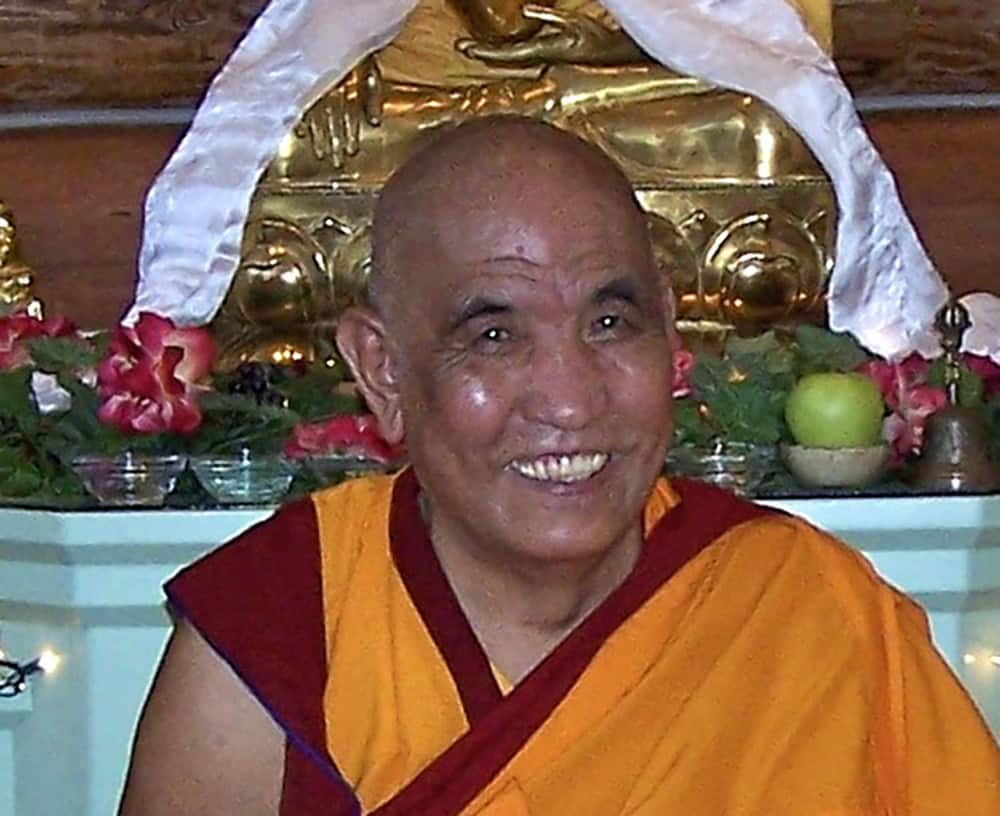Paths of accumulation and preparation
Part of a series of teachings on the bodhisattva paths and grounds according to the Yogācāra Svātantrika Madhyamaka given by Venerable Gyume Khensur Rinpoche at Sravasti Abbey in August 2006.
Bodhicitta
- The methods and importance of cultivating bodhicitta
- The three distinctive paths for the three vehicles: hearer, solitary realizer, and bodhisattva
Paths and grounds of bodhisattvas 02 (download)
Questions and answers
- What the solitary realizer abandons
- An explanation of the possibility of degeneration of bodhicitta on the path of accumulation
- At what point one enters the path of accumulation
Paths and grounds of bodhisattvas 03 (download)
Ganden Tripa Lobsang Tenzin Rinpoche
Kyabje Jetsun Lobsang Tenzin Palsangpo was appointed the 104th Ganden Tripa, spiritual leader of the Gelug school of Tibetan Buddhism, in April, 2017. Born in Tibet in 1934, Rinpoche was ordained as a monk at the age of seven. Following His Holiness the Dalai Lama into exile in 1959, he entered Sera Je Monastery at the age of seventeen. Following a rigorous study of the Buddhist philosophies, he obtained the highest honor of Geshe Lharampa degree in 1979 after debate examinations attended by His Holiness the Dalai Lama and other senior Buddhist scholars. After receiving the Geshe Lharampa degree, he entered Gyume Tantric University and two years later became a master of discipline. Rinpoche also studied the esoteric teachings of the Mahayana tradition extensively while he was there at Gyume Tantric University. In 1985, His Holiness the Dalai Lama appointed him as the abbot of Gyume Tantric University, a position he held for 6 years. He was appointed to the position of Jangtse Choje in 2010, which placed him second in line for the position of Gaden Tripa after former Sharpa Chojey late Jetsun Lobsang Tenzin at that time. He has taught widely in India and the West, including teaching the summer courses at Deer Park Buddhist Center in Wisconsin, taking over after the retirement of his teacher, Geshe Lhundup Sopa.

